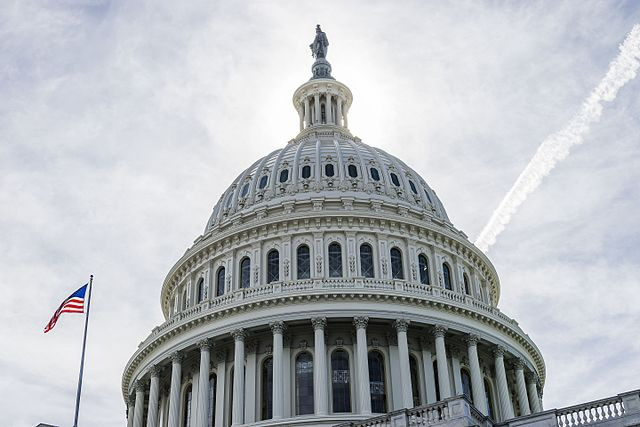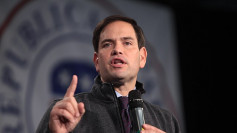President Donald Trump is set to meet congressional leaders at the White House Monday afternoon in a final push to avert a government shutdown that could furlough hundreds of thousands of federal employees and stall key services nationwide as soon as Wednesday. The high-stakes gathering comes with just hours left before the Tuesday midnight funding deadline and little sign that either side is ready to back down from its demands.
White House press secretary Karoline Leavitt said Monday there is "nothing to negotiate," urging lawmakers to pass a short-term continuing resolution that keeps agencies running through November 21. "The president wants to keep the government open. He wants to keep the government funded. There is zero good reason for Democrats to vote against this clean continuing resolution," Leavitt told reporters.
Democrats are insisting that any temporary funding deal include major health care provisions, including reversing $1 trillion in Medicaid cuts enacted this summer and permanently extending Affordable Care Act subsidies that are set to expire at year's end. House Minority Leader Hakeem Jeffries told reporters: "We're headed into the meeting to have a good faith negotiation about landing the plane in a way that avoids a government shutdown but does not continue the Republican assault on the health care of the American people."
Senate Minority Leader Chuck Schumer said Sunday on NBC's Meet the Press that he hopes the president is "focused on serious negotiation" rather than using the meeting to "rant" about grievances.
At the heart of the dispute is $1.7 trillion in discretionary spending that funds day-to-day agency operations - roughly a quarter of the $7 trillion federal budget. The rest is allocated to mandatory programs such as Social Security, Medicare, and interest payments on the $37.5 trillion national debt.
The Republican-controlled House passed a stopgap funding bill on Sept. 19, but it failed in the Senate, where at least seven Democrats are needed for passage. Speaker Mike Johnson has defended the measure, saying it "buys a little time" for Congress to complete work on 12 full-year appropriations bills that have not been passed through regular order in decades.
The stakes are high. Without a deal, federal courts could shutter, small-business grants could be delayed, and agencies such as NASA and the National Park Service could be forced to send workers home without pay. The administration has already instructed agencies to prepare for a reduction in force for nonessential personnel, escalating pressure on lawmakers.
Budget fights have become a familiar feature in Washington - there have been 14 partial shutdowns since 1981 - but Trump's willingness to override spending laws and threaten further purges of the federal workforce has heightened uncertainty. During his first term, the longest shutdown in U.S. history stretched for 35 days over a dispute about immigration funding.
Jeffries warned that Democrats will not accept a funding bill that excludes health care concessions, saying Republicans "cannot be trusted" to address the issue later. Republicans argue those policy debates should be settled by Dec. 31, not during a fight to keep the lights on in Washington.






